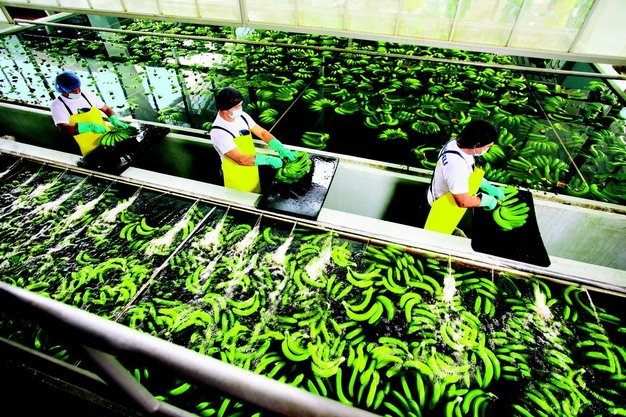The Asian market, especially China, has become a key destination for Ecuadorian bananas, in a scenario marked by a limited global supply, more demanding consumers, and prices that remain at historically high levels. The trade agreement with China has led to lower tariffs, enabling Ecuador to establish a stronger presence in this highly competitive market. However, producers and exporters continue to adapt to the changing preferences of Asian consumers and fluctuations in production volumes.
 © Diana Sajami | FreshPlaza.com
© Diana Sajami | FreshPlaza.com
According to Sandra Monroy, Frutadeli's representative, the company's sales have grown by over 100% in the past year, working closely with Good Farmer, the leading importer of bananas in China. "We have practically become their biggest Ecuadorian supplier, reaching more than 100 containers a week," she stated.
 © Frutadeli
© Frutadeli
The context, however, presents significant challenges. Climate instability has impacted global agricultural production, resulting in fruit shortages and disrupting traditional harvest cycles. "2025 has been an atypical year. Historically, summer is a season of lower consumption and low prices, but this year, prices have not fallen. It's as if banana demand peaked for the whole year," says Monroy, reflecting a structural change in the market.
 © Frutadeli
© Frutadeli
China, traditionally supplied by the Philippines, demands top-quality fruit in terms of sweetness, presentation, and packaging. Ecuador has historically shipped bananas in clusters, but the Chinese market favors presentations in "hands" and premium formats, since the banana is perceived there as a product suitable for gifts. "The adaptation process is complex; it takes time and requires profound changes in the packaging chain, but China consumes everything, and the opportunity is enormous," Monroy stated.
 © Frutadeli
© Frutadeli
Despite the competition and challenges, Ecuador holds a strategic advantage: having bananas available all year round, making it a reliable partner for international buyers during global shortages. Additionally, the trade agreement that will eliminate tariffs in the coming years further boosts this position.
"We want to enter the Chinese market to stay because, with 1.4 billion inhabitants, it is worth staying in it," Monroy concluded, clearly indicating that the goal is to build sustainable, long-term trade relationships.
 For more information:
For more information:
Sandra Monroy
Frutadeli
Ecuador
Tel: +593 99 918 2653
Email: [email protected]
www.frutadeli.com
